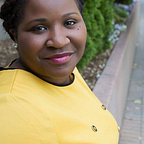The Long Way Home
On the death of Sandra Bland and driving while black
Over drinks, a friend tells me of her upcoming cross-country road trip. It is important to mention that both my friend and her travel companion are white. I am black.
The nearly 3,000 mile excursion from New York to California will take the pair approximately four days but it’s a journey she has made before. She tells me, excitedly, of similar trips made in the past. I bite the inside of my lower lip, eventually making a terrible joke about being careful of the police. It’s a not so subtle nudge to the flurry of fury over the death of Sandra Bland.
Sandra Bland, a 28 year old, African American woman from Chicago. She had recently accepted a position at her Alma mater in Texas. Sandra Bland drove the roughly 1,100 miles from Illinois to Texas. Sandra Bland then was pulled over by the police for making an illegal lane change as she had failed to signal before moving. All we knew last week was that after being pulled over, Sandra Bland was arrested. After 72 hours in jail, Sandra Bland was found dead.
I see the photos of Sandra Bland’s carefree, black girl-self and suddenly it wasn’t what if I am pulled over, for that I am always over-prepared, but a terror of what might happen after.
Last week, I embarked on a solo ten-day road trip from Washington, DC to New York City. Eventually, I would go from New York City to Massachusetts and from there to New York and home to DC. Until last week, I did not fear driving the roads I’ve driven through dozens of times. Roads that are etched into my brain. Until last week my normal worries over music selection were replaced by the what-ifs of driving 500 miles. I see the photos of Sandra Bland’s carefree, black girl-self and suddenly it wasn’t what if I am pulled over, for that I am always over-prepared, but a terror of what might happen after.
Sandra Bland’s only fault is the egregious act of operating a motor vehicle while being a person of color — “Driving While Black”. DWBs are a fact of life among the African American community but a myth to our white peers. Black teenagers are are taught to parallel park, make a proper left hand turn and to say nothing when pulled over by the police. In his 14 years of driving, my younger brother has been pulled over for slowing down to make sure he found the correct house and numerous times for driving in our largely white suburban neighborhood. My little brother has amassed a stack of tickets, eventually reduced to a fine, simply for being a black boy then man, going about his business. Black parents instill in their children the necessity of compliance when it comes to the police. “Just do what they say”, my mother has and I have all while gritting my teeth for I have done nothing wrong. I always keep my registration near and my license in the same slot of my wallet. More often than not, I am allowed to go, with a nod and a half- smile from the officer who was merely ‘just checking’ whether or not I had right to be driving that car or be in that mostly white neighborhood.
Tomorrow, I begin my drive back to DC. I carry Sandra Bland with me.
It’s not that I was taught to fear the police but living as a black woman in the United States has led to trepidation and, ultimately, a healthy fear of those who have supposedly sworn to protect and serve. What happened to Sandra Bland and overt violence towards African Americans across this country as they — we — simply live our lives has been seared into my brain. But Sandra Bland especially. I see her photo float through my Twitter timeline and Facebook news feed and I have to look away. If I don’t look away I stare at her face, into her eyes though it aches to see her smiling at me. I catch myself wondering what went through her mind in those 72 hours It’s an a hurt that is dark and deep. I catch myself wondering what photos of me will be chosen should I fall to the same fate.
But back to that evening with my friend as she described her upcoming road trip and I shifted uncomfortably in my seat, trying not to cry. I made my lame joke and the conversation turned serious. My friend’s face went soft as she told of her worries of other aspects of her trip but she relies on the police as protectors. There’s a confidence there which I and many black Americans have never known. There is a safety she feels that had long been ripped away from me and so many black men and women in the years prior.
Driving While Black - and the consequences thereof - is no longer a myth to white Americans and driven to whispers solely among the black community. I am at a loss. A loss for what comes next as I have been so frequently over the last several years. Tomorrow, I begin my drive back to DC. I carry Sandra Bland with me. I carry a new sense of fear coupled with pain. I carry it with me not only for myself but for those before and for those who will inevitably come later. I’ll grip my steering wheel and go the speed limit. I will ‘yes, sir (or ma’am)’ my way through the East Coast. I will pray for a safe trip home.
